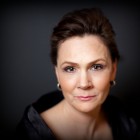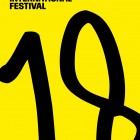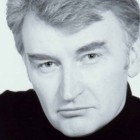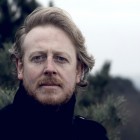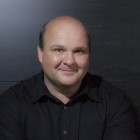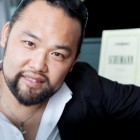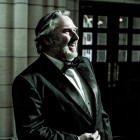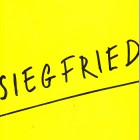Siegfried 2018Edinburgh International Festival
Read more about the opera Siegfried
The operatic offering at the 2018 Edinburgh International Festival consisted of three fully staged productions imported from leading French companies. There were also two concert performances.
In recent years we have heard several of Rossini's less frequently performed operas. Now we could see, together for the first time here, his two most popular comic masterpieces. The Barber of Seville was presented by Le Théâtre des Champs-Elysées, on their first visit from Paris and Cenerentola by the familiar and welcome Opéra de Lyon.
In addition, John Gay's Beggar's Opera was performed by the Théâtre des Bouffes du Nord, from Paris, who had a substantial residency at the Festival. William Christie led the musical side of this multinational coproduction.
The third instalment of Wagner's Ring, Siegfried was performed in the Usher Hall. Sir Mark Elder conducted the Hallé; the all-star cast included Simon O'Neill (Siegfried), Christine Goerke (Brünnhilde) and Iain Paterson (Wanderer).
The creepy forest theme continued with a concert performance of Humperdinck's Hansel and Gretel, given by the RSNO under Sir Andrew Davis. Elizabeth DeShong (Hansel) and Laura Wilde (Gretel) led the cast.
Two important oratorios were also given in the Usher Hall. The Dunedin Consort performed Handel's mighty Samson and the Festival's opening concert was Haydn's Creation.
When it was announced that the Festival would devote one evening over each of four successive years to the performance in concert form of the four elements of Wagner's Ring it seemed like a strange idea. Furthermore, each element was to be performed by a different company. Feelings remained mixed after the opening Rheingold. Valery Gergiev and his Mariinsky forces had toured their Ring widely, and a single performance of the prologue may have lacked a certain sense of excitement, even if there were some memorable performances from the entirely Russian cast.
All doubts were swept away with Die Walküre. Sir Andrew Davis had been building his own Ring with the Chicago Opera. He had not worked with the RSNO regularly for some years, nor had they a huge recent acquaintance with the music of Wagner. However the result was an unqualified triumph. Indeed a major topic of conversation before this Siegfried seemed to be that it would be impossible to compete with the memories from last year.
In discussing this Siegfried, it is essential to start with the conductor and orchestra. For 2018 we had the Hallé under Sir Mark Elder. They have been playing a number of Wagner scores this way in Manchester and now have the music in their blood. After a couple of seasons working with Edward Downes at the new Sydney Opera House, Elder launched his British career on the staff at ENO several years before his 1979 appointment to head the organization. He conducted a wide range of works, including Verdi, Smetana and Strauss. However the Wagner productions, including a now-legendary Ring, were in the hands of Reginald Goodall and Sir Charles Mackerras. It is memories of Goodall that were inspired by this Siegfried. The Hallé strings have long had a wonderful reputation fior the richness of the sonority going back to the days of Barbirolli, half a century ago. Not only was that on display from the start, but every other section of the orchestra was in equally good form. And Elder revealed a level of mastery surprising for a conductor still with relatively little experience of the Ring. Nothing was rushed, yet there was a sense of momentum and of structure that held the audience gripped from the first notes - the near inaudible, mysterious timpani and growling winds. The start of the third act, when Wagner unveils his newly developed skills (having put Siegfried aside to compose Tristan and Meistersinger) had an overwhelming impact.
The Brünnhilde from the USA and Siegfried from New Zealand returned after last year's success. If Bryn Terfel's absence may perhaps be lamented, by some, the compensation could hardly be improved on. Glasgow-born Iain Paterson has now sung many leading Wagner roles in the world's great houses, though not previously on home territory. He is the first Scot to sing Wotan since the great David Ward back in the sixties and seventies. All three enjoyed a triumph.
Simon O'Neill, having sung several of the more lyrical heldentenor roles at Covent Garden, Bayreuth and elsewhere, has just recently approached the title role in Siegfried. and he was the only soloist who had a score in front of him, though he didn't seem to need it much. It is a hugely long and physically demanding part, with much punishing high writing, that needs to be projected in a heroic manner. In the past, many tenors have struggled to complete the task. O'Neill has a voice with a bright, youthful tone, entirely appropriate, but not often heard in the part. There was no need to worry about his stamina either, and his voice was just as keenly focussed in his final duet with Brünnhilde as it had been three hours earlier in his magnificently projected Forging Song.
One aspect that makes the part of Wotan so demanding is the vocal range required - almost a high baritone in Das Rheingold, while the part of the Wanderer in Siegfried is more of a bass role. It did seem that Iain Paterson was not entirely at ease in his first appearance - the low notes in the riddle scene did not quite project, though they may have sounded fine in other parts of the hall. His third act summoning of Erda, underpinned by the tumultuous orchestra, saw him at his best, with a wonderfully rich outpouring of sound, clearly enunciated. He did reveal that a bit more physical effort was required in this beast of a part than some of his predecessors, but there can be few Wotans to match him at present.
If only because they were unknown to the local audience, the two star performers who made a huge impact at every appearance were the dwarves. Both have sung a range of major Wagner roles around the world, and indeed Gerhard Siegel will be repeating Mime at Covent Garden this autumn. He has previously sung other Wagner parts, including Walther von Stolzing, Parsifal, Loge, Siegmund and even Siegfried himself. This indicates the rather obvious fact that he has a much bigger and richer voice than your average dwarf. At his first appearance there was a slight sense of incongruity when his voice sounded more powerful and full-toned than young Siegfried's. This quickly passed, however, and his entire performance was one of huge distinction - none of the cliché-ridden whining and caricature that performers supply as a short-cut to character. His acting was detailed and subtle, a complete stage performance in effect, and his rapid switches from wheedling to malevalent threats in the second act were acutely observed.
As his brother Alberich, the Korean bass-baritone Samuel Youn, whose wide repertoire also includes the Dutchman, Wotan and Hagen, was every bit as exceptional. The baleful power and obsession were astonishingly well projected, completely without forcing or barking. A quite outstanding performance of this difficult part.
Christine Goerke made a big impact last year as the young Valkyrie, so it was good that she was able to return for this much shorter part. A rich-toned, vibrant true dramatic soprano, with beautifully accurate high notes to crown the performance. Anna Larsson has somewhat cornered the market as Erda, singing around the world in recent years, and it was easy to hear why. She has a beautifully produced liquid tone, and is that increasingly rare thing, a true contralto.
Clive Bayley, a stalwart with Opera North and the Royal Opera over many years, has rarely sung in Scotland, and that has clearly been our loss. Such a wonderfully black tone-colour is precisely what is needed for Fafner, and it was nice to hear the role projected from the stage rather than (as so often) as a distorted, amplified voice. There was one late change in the cast, after the excellent, chunky programme had gone to press. This was the short but vital role of the Woodbird in the second act. Malin Christensson being indisposed, a young Greek soprano, Danaë Kontora, flew in from her base in Germany, She was quite faultless, with a lovely sweet tone and excellent diction.
At the end of each act the audience went wild, and the final curtain calls were quite joyous. Next year we will hear Götterdämmerung, of course. Last year there were suggestions that this will feature the return of Sir Andrew Davis with the RSNO, following the success of Die Walküre. Certainly the Festival management need look no further for casting the appropriate roles - each of these singers will be very welcome to return.

